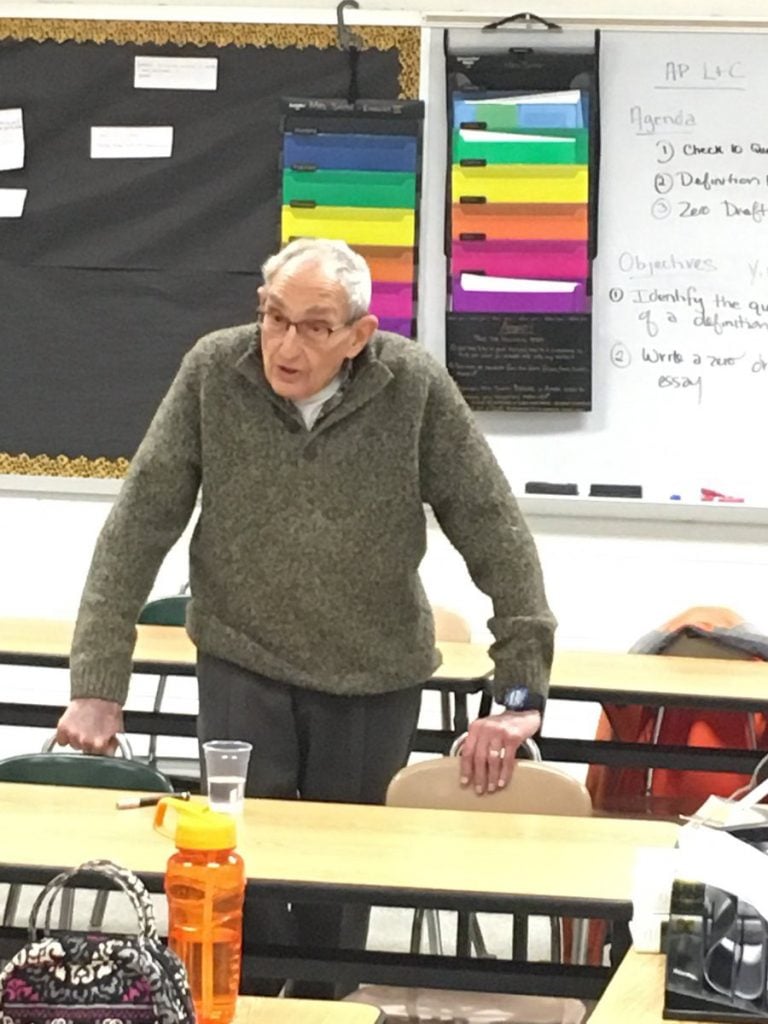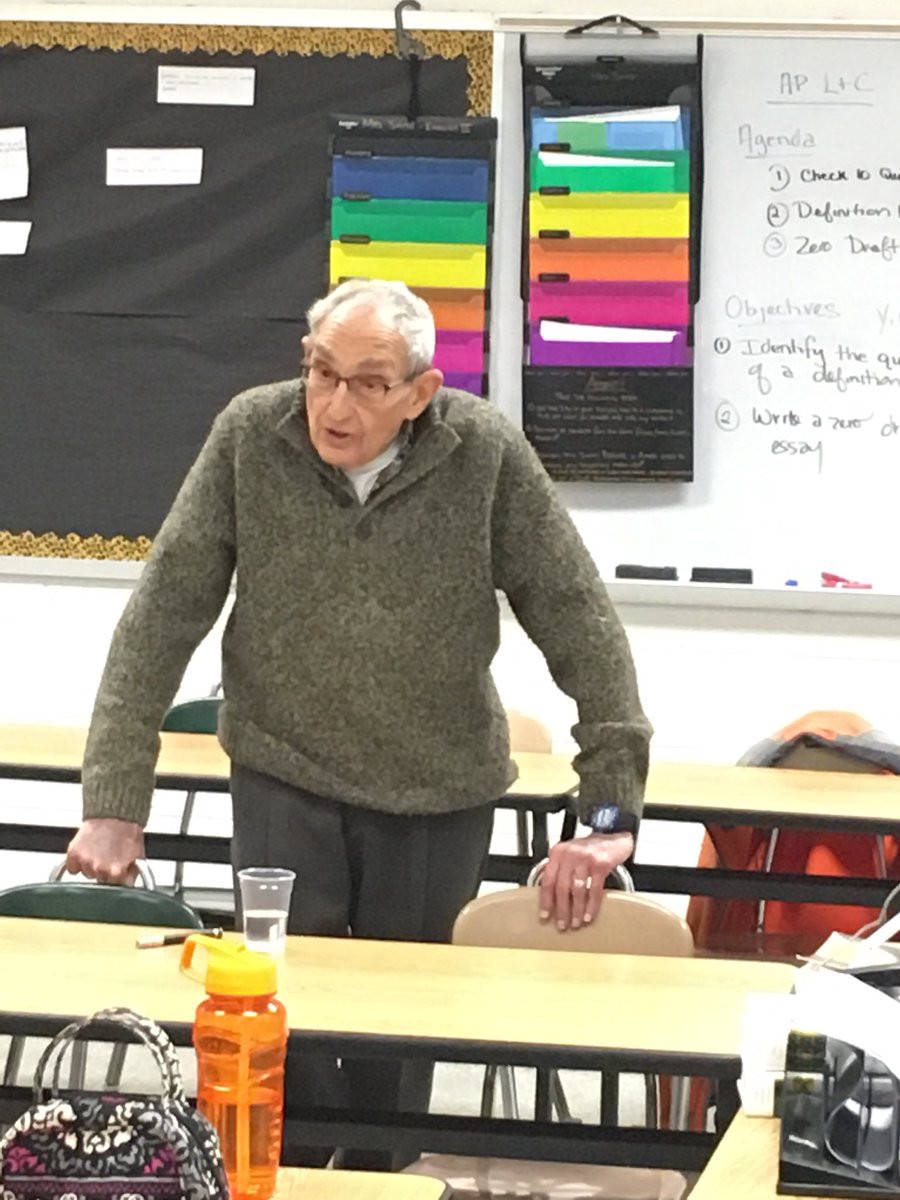
Dr. Jerry Ehrlich, of Cherry Hill, recently visited Seneca to talk with students about his experiences working with Doctors Without Borders.

Students in Seneca High School’s Literature of the Holocaust class got the opportunity to connect the curriculum to issues in their global community. Dr. Jerry Ehrlich, of Cherry Hill, NJ, spoke to the class about his experience as a pediatrician volunteering for Doctors Without Boarders — an organization whose mission is to “help people worldwide where the need is greatest, delivering emergency medical aid to people affected by conflict, epidemics, disasters, or exclusion from health care.”
Dr. Ehrlich spent time in Darfur, Sudan in the mid-2000s where he provided medical care for displaced children at a refugee camp. Dr. Ehrlich’s presentation focused on the issues facing those who are victims of genocide and shed light onto the living conditions inside the 60,000 person camp in which he volunteered.
Dr. Ehrlich’s humanitarian efforts made a tremendous impact on the students. Showing the effects of hatred helped the students understand how important their role is in stopping hate.
Sean Cassel, English teacher for the Literature of the Holocaust class, said, “Having Dr. Ehrlich share his experiences is invaluable. Knowing the effects of hate, and being able to hear firsthand accounts like Dr. Ehrlich’s deepen their understanding of the course and the world.”
During his experience, Dr. Ehrlich collected drawings from children who used art as a way to express their experiences during the genocide. Seneca’s Literature of the Holocaust students will create a permanent place to display a few of these drawings along with a plaque reminding others about the effects of hate as part of its No Place for Hate initiative.
When asked about the importance of creating this display, junior Kayla Handt said, “We need to have a constant reminder so that history doesn’t repeat itself. Dr. Ehrlich spoke about the phrase ‘Never again’ being used after each genocide. Unfortunately, they continue to happen. This is our way of memorializing the genocide in Darfur, but it is also our way of keeping the effects of hate in the conversation.”









